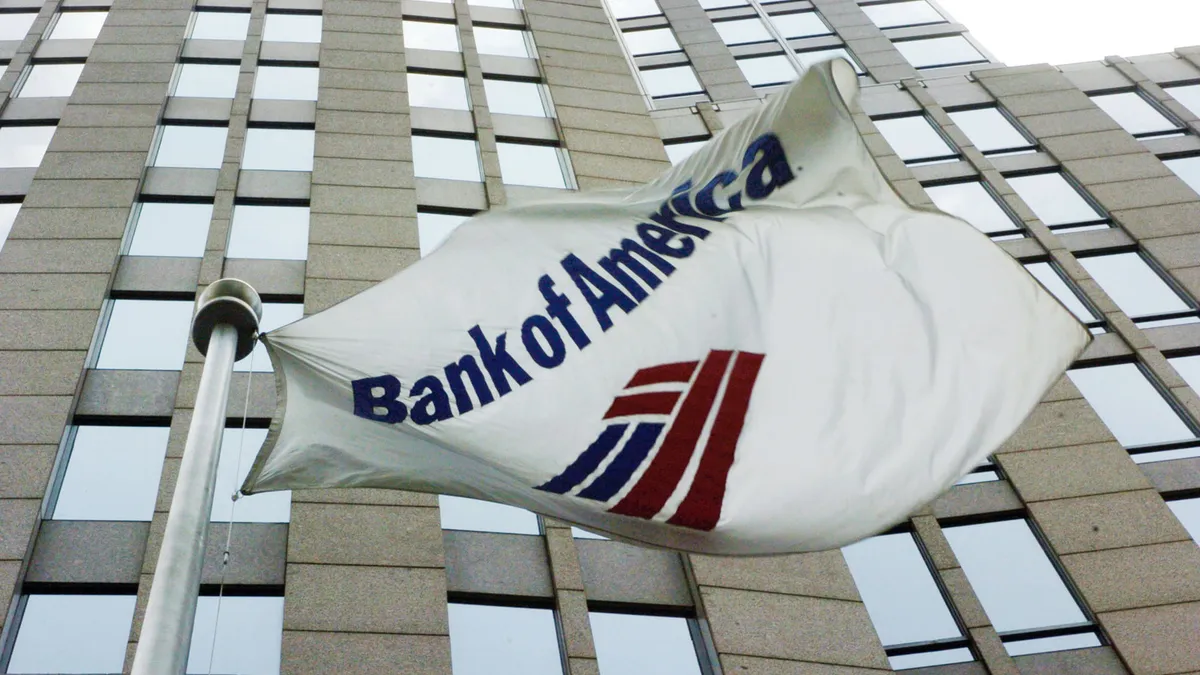Bank of America’s Merrill Lynch has agreed to pay $12 million in penalties — split evenly between the Securities and Exchange Commission and the Financial Industry Regulatory Authority — for failing to file roughly 1,500 suspicious activity reports from 2009 to 2019, the SEC said Tuesday.
Broker-dealers such as Merrill Lynch must file SARs to the Financial Crimes Enforcement Network on transactions of $5,000 or more that might indicate money laundering, tax evasion and other questionable activity.
But Bank of America, after acquiring Merrill in 2009, used a $25,000 threshold, the SEC said.
“Broker-dealers have a critical obligation to report suspicious activity in their accounts,” Katharine E. Zoladz, co-acting regional director of the SEC’s Los Angeles office, said in a statement Tuesday. “Merrill Lynch and [Bank of America’s North American holding company] did not file hundreds of Merrill Lynch SARs because they failed to comply with one of the most basic requirements for a SAR program.”
Merrill Lynch and Bank of America did not admit or deny the SEC’s findings, but each agreed to stop committing the violations, and Merrill submitted to a censure.
“Following an internal review, we reported this matter to regulators and have enhanced our process and training regarding these filings,” a spokeswoman for Merrill Lynch told The Wall Street Journal.
FINRA, for its part, said its $6 million portion of the penalty stems from BofA and Merrill’s failure “to establish and implement policies, procedures and internal controls reasonably designed to cause the reporting of suspicious transactions as required by the Bank Secrecy Act.”
The SEC and FINRA penalties were among several enforcement strikes Bank of America faced Tuesday. The Consumer Financial Protection Bureau ordered the bank to pay $90 million in fines, and repay $100 million to harmed customers over claims the Charlotte, North Carolina-based lender double-dipped on fees, wrongfully withheld credit card reward bonuses and opened fake accounts. The Office of the Comptroller of the Currency, meanwhile, fined the bank $60 million in a related action.
It wouldn’t be the first time a penalty went relatively under the radar as news surfaced that the same bank agreed to pay another, larger one in short order. In September 2022, for example, Wells Fargo agreed to pay $94 million to settle a class-action lawsuit alleging the bank automatically placed mortgage borrowers into forbearance if they notified the lender that they were experiencing financial distress toward the start of the COVID-19 pandemic.
Within the same news cycle, however, the Labor Department announced that Wells Fargo had agreed to pay roughly $145 million to settle allegations that a 401(k) plan for bank employees overpaid for Wells Fargo preferred stock between 2013 and 2018.
Tuesday’s fine isn’t Merrill’s first from the SEC this year. The regulator fined the broker-dealer in April for charging clients more than $4 million in undisclosed foreign exchange fees.












